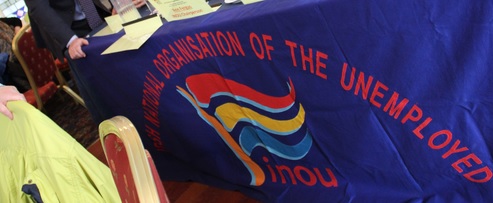Update on 2024 INOU Motions
With the INOU Annual Delegate Conference fast approaching, this is a useful time to reflect on the progress of last year’s successful motions from the 2024 Annual Delegate Conference.
Employment Programmes
The INOU General Branch of Individual Members submitted two motions which were agreed at the 2024 Conference. The first called on the Government to increase the Community Employment and TUS payment rates to further enable people to take-up these positions. The motion was included into a number of INOU Submissions, and it was very welcome to see the following proposal included in the Programme for Government, ‘Increase the top-up payment for participants on CE, TUS, and the Rural Social Scheme in recognition of the important work they do in local communities’.
Addressing Working Age Payment Anomalies
The second General Branch successful motion called on the Government to change the system for working part-time and signing-on to one based on the number of hours worked rather than the number of days. The General Branch motion noted that the current system is very unfair and is impacting on unemployed people taking up some work opportunities. The motion chimed with longstanding INOU concerns over the unfairness inherent in the current system. It is in this context that the Programme for Government commitment, to introduce a new Working Age Payment which should ensure that individuals always see an increase in income when they work or take on additional hours, is very welcome. The Programme advises that the Working Age Payment will remove inconsistencies and anomalies in the current Jobseekers Allowance Scheme which discourage people from taking up employment. The commitment to fully engage with stakeholders is also very useful.
Adapting to the Changing World of Work
The Belfast Unemployed Resource Centre (BURC) motion read that ‘as Ireland seeks to address the challenges of automation, digitalisation, and the move to a climate neutral economy, BURC urges the Government to properly support unemployed people and others marginalised in the labour market, to participate in education, training and employment programmes that will ensure they gain access to decent employment’. Addressing these challenges and providing enhanced supports have been a feature of a number of INOU submissions, including our Pre-Budget Submission. The motion also directly relates to this year’s Annual Delegate Conference theme, Technological Change, Digitalisation and Artificial Intelligence (AI). The INOU will also be looking to influence the upcoming Pathways to Work five-year strategy.
Supporting People who are Unemployed
Linked to the Belfast Unemployed Resource Centre’s motion was an aspect of the INOU National Executive Committee’s (NEC’s) motion calling on the Government to properly support unemployed people and others marginalised in the labour market to participate in meaningful education, training and employment programmes. The other aspect of the motion called on the Government to benchmark all social welfare rates at a level which is sufficient to lift people above the poverty line and provide them with a Minimum Essential Standard of Living. The INOU has prioritised the importance of establishing a benchmarked social welfare rate, drawing on the excellent evidence-based research from the Vincentian Minimum Essential Standard of Living (MESL) Research Centre. The INOU has flagged this priority at policy meetings and committees, in addition to a range of Submissions. A recently organised INOU online event considered ‘What is an Adequate Income?’. Robbert Thornton, Research Manager at the Vincentian MESL Research Centre and Rebecca Gorman, INOU Head of Policy and Media provided compelling presentations on the necessity of an adequate income.
Supporting Access to Decent Work
The second INOU NEC’s motion called on the Government to deliver wrap around employment and support services that really meet the needs of people who are unemployed, regardless of whether they are on a social welfare payment, and to support them to access decent work while appropriately addressing any barriers they experience. This important motion has been a key ask for the INOU in a number of submissions and discussions. We are in the process of researching unemployed people’s experiences of the Local Area Employment Service (LAES). This will take the form of structured informal focus groups of unemployed people to hear directly from unemployed people what is working well and what could be improved. This will also help inform our policy.
